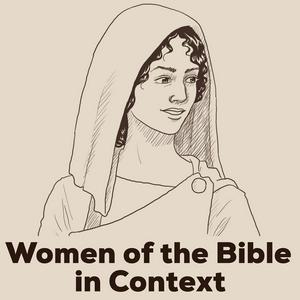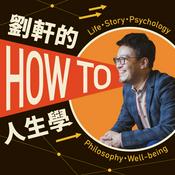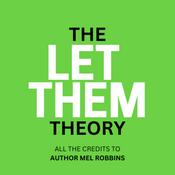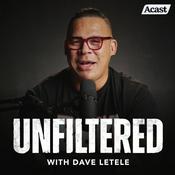33 episodes
- Send us a text
The room is cold, the kingdom colder. David can’t keep warm, and the palace drafts Abishag the Shunammite to lie beside him—an ancient remedy that exposes a deeper crisis: a fading king, a fragile succession, and a court willing to spend a woman’s future to buy a few degrees of heat. From that stark image, we follow the threads of 1 Kings 1–2 as Bathsheba steps back into view, not as a pawn but as a strategist and mother who knows how to turn truth into action.
We walk through Adonijah’s armored pageant and the alliances behind his claim, then listen as Nathan cues Bathsheba to confront David with a promise and a duty. Her words are careful and cutting, and they work: Solomon is anointed at Gihon, the royal mule becomes a sign of legitimate rule, and the city’s shout rolls down the valley. Mercy spares Adonijah—on conditions. What happens next reveals how the politics of the harem intersect with the politics of the crown. As Queen Mother, Bathsheba receives Adonijah’s “small” request to marry Abishag, a move loaded with dynastic meaning. She carries it to open court with formal precision, and Solomon hears it for what it is: a renewed bid for the throne. The verdict is swift. The kingdom holds.
Still, one name lingers. Abishag’s story fades into the margins, her life circled by decisions she didn’t make. We wrestle with that silence, the ethics of ancient power, and the way Scripture both records and critiques systems that consume women. Along the way we unpack name meanings, geography, and ancient customs to make the text vivid: why Gihon mattered, why a mule signaled legitimacy, and how the Queen Mother’s seat shaped policy. Above all, we keep sight of the God who keeps sight of those power overlooks—Bathsheba, Abishag, and all who feel shelved in the shadows.
If this exploration deepened your understanding or gave you new empathy for the women at Scripture’s hinge points, share it with a friend, subscribe for more, and leave a review with the question you’re still pondering. Your reflections help others find the show.
Support the show
...................
Follow We Who Thirst on Instagram, Threads, or YouTube!
To join Jessica LM Jenkins' mailing list, or access the full research bibliography for this episode visit www.wewhothirst.com/links .
Thank you for supporting the Women of the Bible in Context podcast, your contributions make this ministry possible! - Send us a text
What if the Bible’s turning points hinge on women we were taught to ignore? We sit down with Dr. Ingrid Faro to follow a bright thread through Scripture—Eve’s resilient hope, Rahab’s audacious confession, Tamar’s righteous risk, Hannah’s prayerful courage, Bathsheba’s hard-won voice, and Jehosheba’s daring rescue—that together advances the story of salvation. Far from side characters, these women act as God’s agents at moments when everything could collapse.
We begin with Ingrid’s journey from deep personal trauma to Old Testament scholarship, and how study in Hebrew and archaeology opened space for healing. Then we reframe Genesis 1–2 as the bedrock for human dignity and shared vocation: image-bearers called to rule together, with the woman named ezer, a strong ally, and tsela, the sacred “side” that holds up the dwelling of God. This lens clarifies the rest of Scripture—if a side is missing, the structure fails—and challenges church cultures that sideline women and dim their witness.
We also set Bathsheba’s story straight by following the verbs of power—who sees, sends, and takes—and by reading the narrative through trauma-aware eyes. David’s sin is named; Bathsheba is never blamed. From there, we trace how women serve as a barometer of communal health: when they’re honored and heard, families and nations thrive; when they’re silenced or harmed, collapse follows. Along the way, Ingrid offers practical counsel for those discerning seminary, plus a curated list of resources to keep learning and leading.
Listen to rethink familiar passages, recover the voices Scripture highlights, and rediscover a mission built for men and women to carry together. If this conversation resonates, subscribe, share it with a friend, and leave a review so more people can find these stories and join the dialogue.
Support the show
...................
Follow We Who Thirst on Instagram, Threads, or YouTube!
To join Jessica LM Jenkins' mailing list, or access the full research bibliography for this episode visit www.wewhothirst.com/links .
Thank you for supporting the Women of the Bible in Context podcast, your contributions make this ministry possible! - Send us a text
Advent isn’t a glossy postcard here; it’s a story told under the stare of a fortress and the echo of marching boots. We open the Nativity in the time of Herod and Rome, where fear, taxes, and crushed revolts shape daily life—and where lament becomes a holy practice of agreeing with God that the world is not as it should be. From Zechariah’s once‑in‑a‑lifetime temple moment to Mary’s dangerous “yes” in Galilee, we follow the threads of personal shame, public pressure, and prophetic hope that converge on a peasant birth with cosmic consequences.
Zechariah hears that John will prepare a people, turning hearts when loyalty is fractured. Mary sings the Magnificat, announcing a great reversal that lifts the humble and disorients the proud. Joseph learns that salvation addresses corporate sin and covenant faithfulness, not just private faults. Shepherds receive a proclamation guarded by a heavenly host—an army announcing peace not enforced by empire, but born in God’s favor. In the temple, Simeon and Anna name the child as light for the Gentiles and glory for Israel, while warning that the path of redemption will pass through suffering.
When Magi honor the newborn king, Herod’s rage explodes, and the family flees as refugees to Egypt. The trauma doesn’t stop after the manger; it molds Jesus’ childhood in Nazareth, surrounded by unrest and stories of revolt. And yet, when he speaks as a man, he refuses the lever of power. Presence, not power, defines his kingdom. Bread for the hungry, healing for the sick, dignity for the lowly—this is how God answers lament. Christmas, then, is God with us in the thick of it, holding our hands through grief while moving history toward renewal.
If this season feels heavy, you’re not outside the story—you’re inside its very heart. Listen, share with someone who needs steady hope, and leave a review to help others find this conversation.
For more nativity episodes, be sure to catch:
013 Historical Context of the Nativity: Part 1
014 Historical Context of the Nativity: Part 2
020 Boy Jesus in Trauma's Shadow (Interview with Joan Taylor)
Support the show
...................
Follow We Who Thirst on Instagram, Threads, or YouTube!
To join Jessica LM Jenkins' mailing list, or access the full research bibliography for this episode visit www.wewhothirst.com/links .
Thank you for supporting the Women of the Bible in Context podcast, your contributions make this ministry possible! - Send us a text
Bathsheba’s story has been trimmed into a tidy cautionary tale for far too long. We open the text back up with hospital chaplain and theologian Liz Day to confront the real dynamics at work: power, consent, silence, and the cost borne by survivors when churches protect kings and blame women. Starting with how Bathsheba is framed from pulpits and commentaries, we unpack the myths—like “lust made him do it”—and trace how Scripture itself reads the moment through Torah ethics and Nathan’s parable, where the stolen lamb mirrors the life-altering harm Bathsheba endures.
Together, we ask better hermeneutical questions: Where is God in this text? What is God like? We notice God’s refusal to endorse abuse, God’s prophet confronting a king, and Scripture’s pattern of letting survivors like Tamar speak. We challenge the popular use of Psalm 51 as a shortcut back to platform, naming why confession without justice, repair, and power relinquished is not repentance. From there, we move into practice: how to become trauma-informed communities that believe disclosures, make space for lament, and choose presence over platitudes. We talk about sharing power, setting real limits on leadership, empowering survivors, and reshaping discipleship at the grassroots so children learn a truer story—one where righteousness and justice belong together.
If you’ve wrestled with David and Bathsheba, sensed a disconnect in how the story is preached, or wondered how churches can genuinely be safe for the wounded, this conversation offers language, tools, and hope. Listen, share with a friend who needs it, and then tell us: what one change would make your community safer for survivors? Subscribe, leave a review, and keep the conversation going.
Get the PDF download: “Evidence That Bathsheba’s Story Is Rape, Not Adultery.” Link in the episode description and on our website
Support the show
...................
Follow We Who Thirst on Instagram, Threads, or YouTube!
To join Jessica LM Jenkins' mailing list, or access the full research bibliography for this episode visit www.wewhothirst.com/links .
Thank you for supporting the Women of the Bible in Context podcast, your contributions make this ministry possible! - Send us a text
(TW: Rape, sexual assault, abuse of power, murder)
Start with the text, and the story starts to sound very different. We walk through 2 Samuel 11–12 line by line and confront the hard truth: Bathsheba was not a seductress or a co-conspirator; she was a woman overpowered by a king who chose to abuse his authority. From ancient bathing practices to royal protocol, we dismantle common myths and show how the power gap makes consent impossible. The Hebrew details matter, and so does the narrative’s moral center: what David did was evil in the eyes of the Lord.
We explore how Deuteronomy’s city-and-field framework helps modern readers understand rescue, consent, and why Bathsheba had no defender within the palace. Then we trace David’s escalating choices—coverup attempts, manipulation, and the engineered death of Uriah that cost other soldiers their lives. Nathan’s parable reframes everything: the rich man steals the poor man’s lamb, and God links this theft to a kind of murder. That biblical image is a trauma-informed insight long before we had the term, revealing how sexual assault destroys something vital in a person’s life.
Yet the chapter also carries a thread of hope. After judgment and grief, Bathsheba bears Solomon, and God names him Jedidiah—beloved of the Lord. In a world where a woman’s future rests in her children, that name becomes a promise to her that she is seen and her child is cherished. Our goal is to give listeners a clear, faithful reading that centers survivors, names abuse without euphemism, and honors God’s justice and mercy.
If this episode helped you see Bathsheba’s story with fresh clarity, share it with a friend, subscribe for the next part of our mini-series with Liz Day, and leave a review to help others find the show. Your reflections and questions shape where we go next.
Get the PDF download: “Evidence That Bathsheba’s Story Is Rape, Not Adultery.” Link in the episode description and on our website
Support the show
...................
Follow We Who Thirst on Instagram, Threads, or YouTube!
To join Jessica LM Jenkins' mailing list, or access the full research bibliography for this episode visit www.wewhothirst.com/links .
Thank you for supporting the Women of the Bible in Context podcast, your contributions make this ministry possible!
More Education podcasts
Trending Education podcasts
About Women of the Bible in Context: Her God, Her Story, Her Voice
Rediscovering women of the Bible at the intersection of trauma, ancient historical context, and Biblical languages with Jessica LM Jenkins of We Who Thirst.................................................For a complete bibliography for each episode visit: https://rb.gy/xx0no6If you'd like to support research into women of the Bible in their historical context, join my Patreon: www.patreon.com/wewhothirst
Podcast websiteListen to Women of the Bible in Context: Her God, Her Story, Her Voice, Begin Again with Davina McCall and many other podcasts from around the world with the radio.net app

Get the free radio.net app
- Stations and podcasts to bookmark
- Stream via Wi-Fi or Bluetooth
- Supports Carplay & Android Auto
- Many other app features
Get the free radio.net app
- Stations and podcasts to bookmark
- Stream via Wi-Fi or Bluetooth
- Supports Carplay & Android Auto
- Many other app features


Women of the Bible in Context: Her God, Her Story, Her Voice
Scan code,
download the app,
start listening.
download the app,
start listening.








































